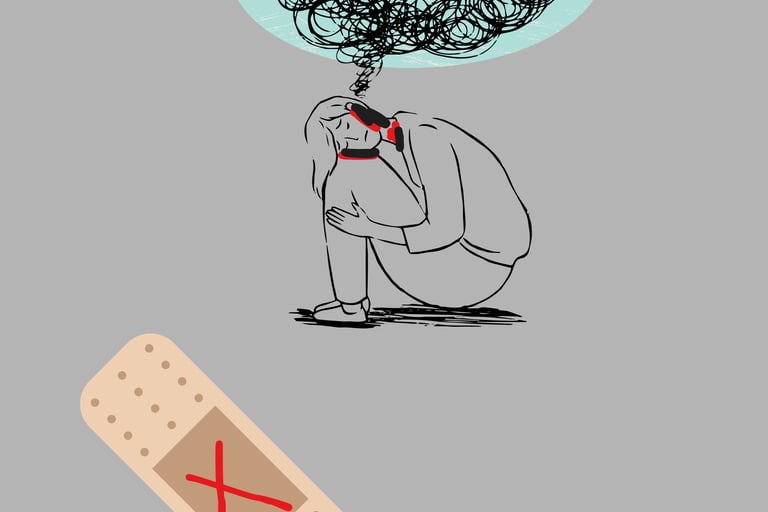No Healing: When skin becomes the conversation, my struggle with skin insecurity.
Chapter-11 Returning to work after a skin condition wasn't easy. From insensitive comments to self-doubt, my skin insecurity lowered my skin confidence, even when the condition was beyond my control.
STORIES
AY
10/26/20252 min read


June: No Healing
Returning to reality after summer break:
After spending a month at home during summer vacations, it was time to return to my real life. My workplace was scheduled to reopen on 26th
June, so I decided to leave on the 24th to take care of all necessary arrangements beforehand. I needed to have my bedsheets washed, my sarees
ironed, groceries brought for the entire week- vegetables, oil, everything, and above all, I wanted to get back into the system.
But the thought that kept spiraling in my head was my skin. I felt like it had darkened over time, and some of the discoloration was creeping toward my neck. I had been diligently applying the cream prescribed by my dermatologist and religiously using sunscreen—but nothing had changed. Before my summer break, I thought that spending an entire month at home would help. I mean, how hard could it be, right? But nothing changed.
Facing skin insecurities at work:
I wasn’t sad because my skin hadn’t improved. I was depressed because I knew I would have to face those awkward questions again. This time, it wouldn’t just be the co-workers —my students would notice too, and I had to face them while delivering lectures. I had never been this conscious about my looks, but this was slowly eating me alive. I felt so insecure about my condition that I didn’t even want to go to work.
Our workplace usually starts with meeting sessions for educators, and during these, I tried to make myself as invisible as possible. But people are people—and some feel the need to comment, as if that’s what keeps them alive. While I was sitting in my cabinet, one of the male teachers came over and asked, loud enough for others to hear, why my skin hadn’t improved.
Learning to stand up for myself with skin conditions hampering confidence:
I reacted immediately: “Skin problems don’t get cured overnight.” I mean, what are we even supposed to say to such people, right? I had already been dealing with enough on my own, but some people seem to have this strange urge to poke right into your insecurities—as if it gives them some twisted satisfaction. And I guess there comes a time when you’re just too fed up with being nice all the time.
A little later, another lady teacher walked up to me and said she couldn’t see any difference in my skin—that it looked just as bad as it did before the vacations. Are they serious? Do they even realize how cruel that sounds? And even after hearing such comments, people still expect the victim to behave nicely and reply politely. I told her that I could see the difference, even if she couldn’t, and that is all that matters. She made a face and walked away—and after that, she never dared to ask me about it again.
The toll on emotional well-being:
I don’t want to sound rude or bitter or whatever label people like to give. But I do expect a little sensitivity, even if not sympathy. If you don’t have anything kind to say, it’s better to just keep your mouth shut.
The constant attention made me afraid of mirrors. I started hating my own reflection, and scrolling through my old photos became a strange, painful habit. I developed a defensive wall around myself. Even when people came with good intentions, my irritation would find a way to surface. Without even realizing it, I started slipping into a pit of anger and resentment—against everyone around me. Which was sad because it was making me sad.
With love,
AY